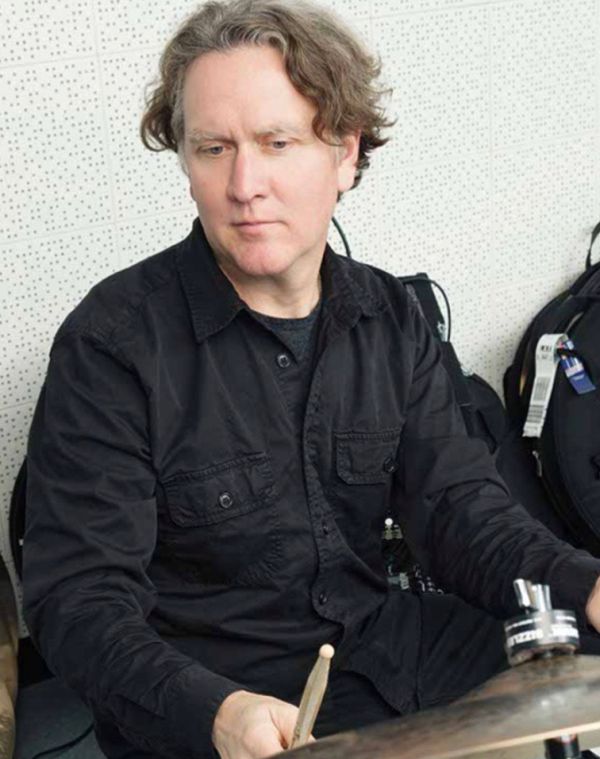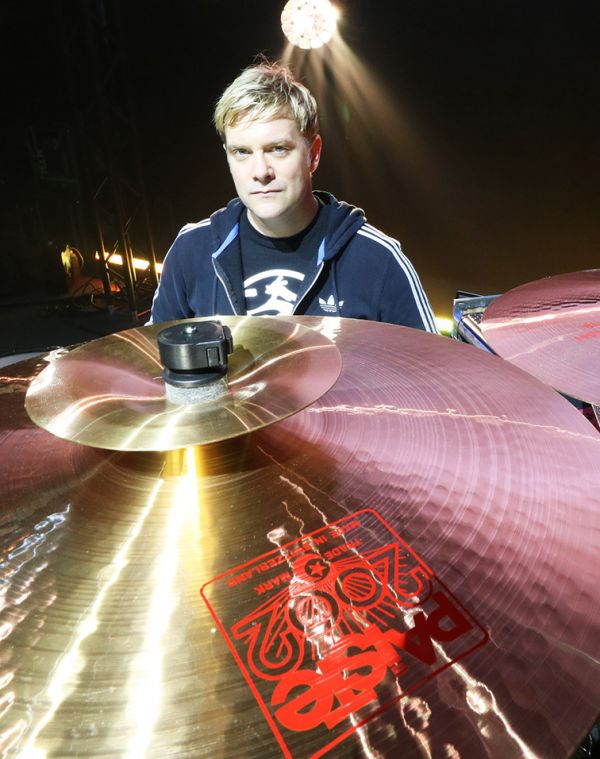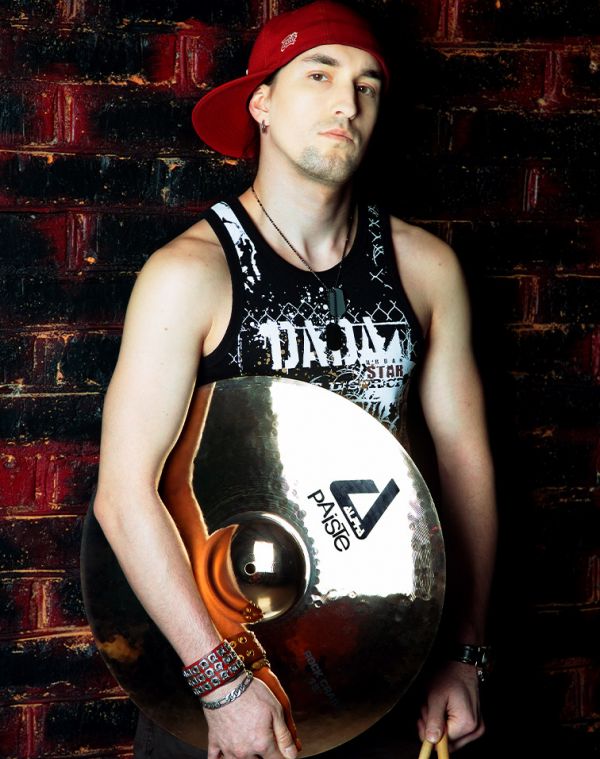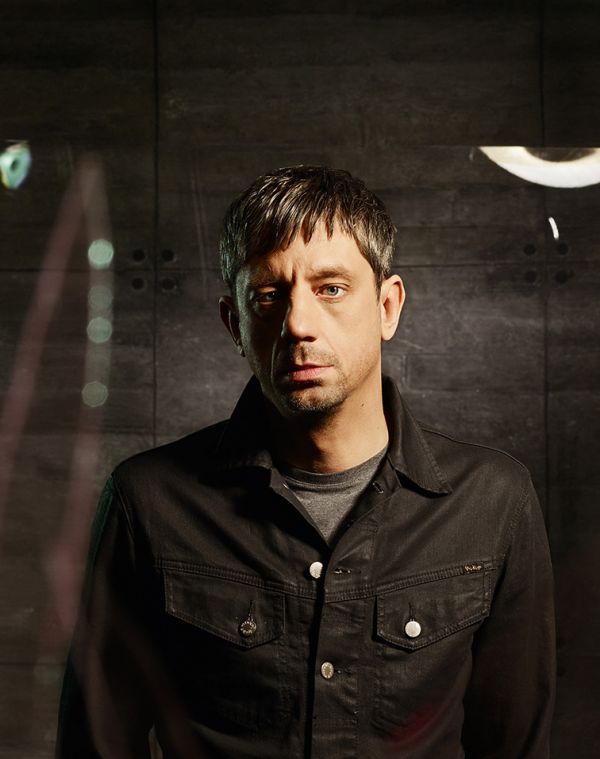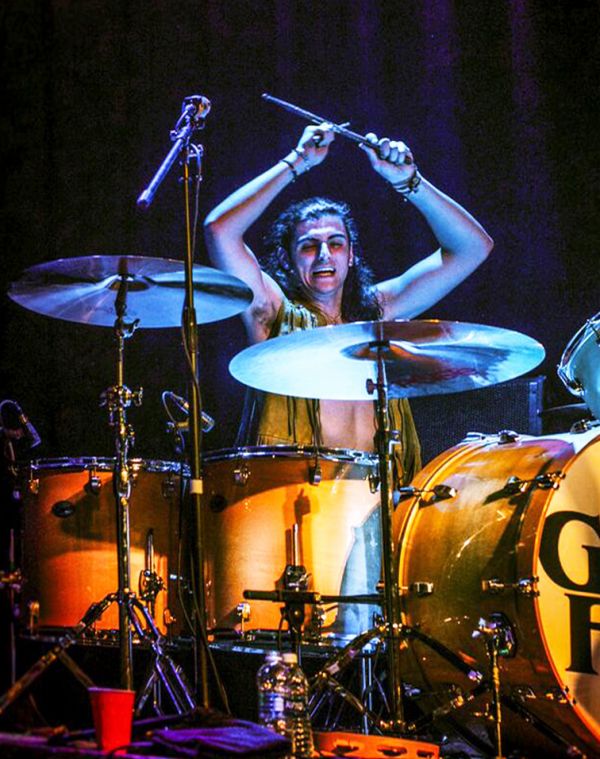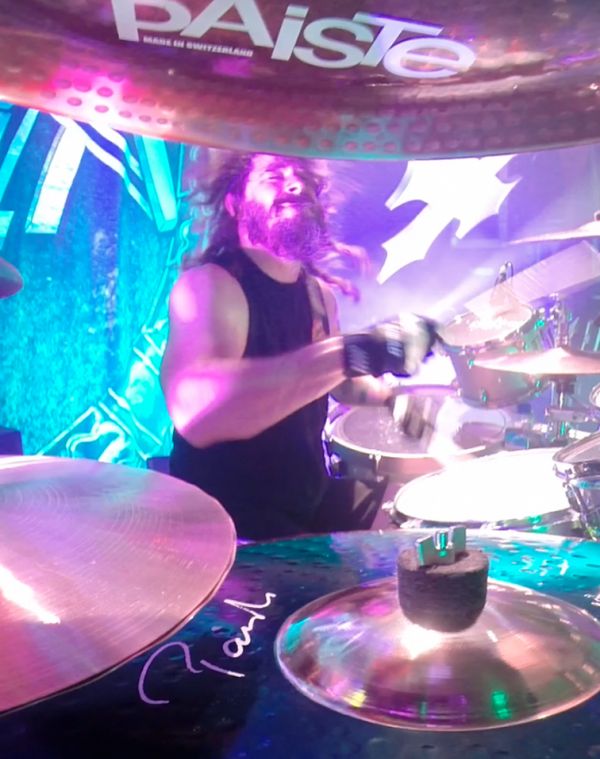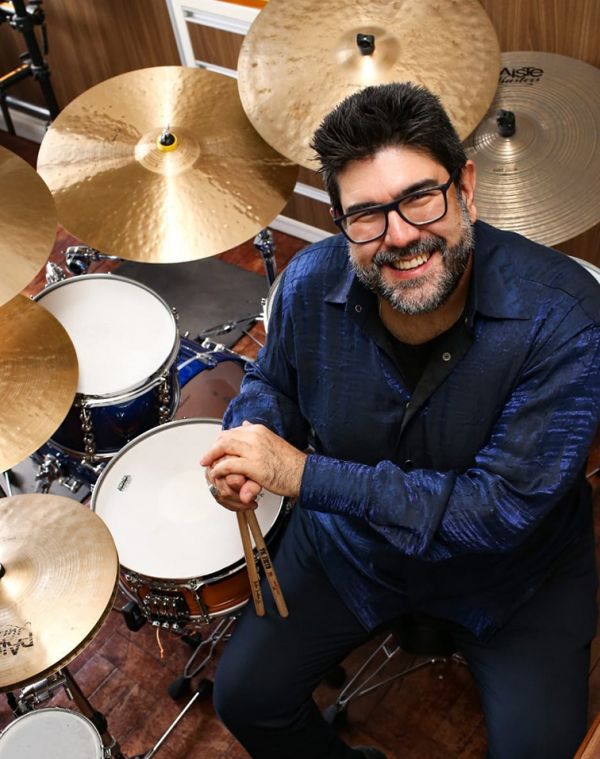
“Once you’ve been playing Signatures you can’t go back.”
An iconic drummer in an iconic band, Mikkey Dee used and abused the drums at high speed in Motörhead for almost 25 years. After the band’s mastermind Lemmy passed away it did not take long until Mikkey found a new challenge and joined megasellers Scorpions. Earlier this year Mikkey recorded his first album with the Scorpions. The release date is still a secret and the band doesn’t reveal too much about the songs, but in the interview Mikkey lets us know: “You will be positively surprised.”
Did you approach your first Scorpions album sessions in a different way than you used to do with Motörhead?
“That’s for sure. With Motörhead me and Phil (Campbell, Motörhead guitarist, editor’s note) wrote most of the music. Lemmy was busy writing melodies and lyrics. So I was much more involved from the beginning of a record. It was a different situation with the Scorpions, because a lot of the songs obviously were written before I came in there. We all recorded the pre-production together, though. It’s not possible to cut a record without knowing the direction, you know? Here I’m playing more traditionally to a bass player. With Motörhead we were a 3-piece band. I had to have a different approach regarding the drum fills and rhythms. For instance when Phil was doing a solo, I had to be busier. And here, when Matthias (Jabs) or Rudolf (Schenker) does a solo, I have to stay more on the rhythm. It’s a completely different approach how to push and how to lean back on the drums. With Motörhead we wrote more spontaneously. We didn’t write that many songs for each record. We played what we felt from the heart. If you play Motörhead music, it has to be very, very heavy and very spontaneous. Sometimes you lose that, if you analyze music too much. You can over-produce or destroy the song. With Scorpions we have a wider audience. Here you have to make sure that everything is more arranged and more correct I would say. That’s not easy, because you still want to keep the live feeling in the songs.”
When you started touring with the Scorpions a couple of years ago, I remember, that you wanted to try lighter Signature series cymbals as well as 2002s. Could you please tell me more about the process of finding your final Paiste sound for the Scorpions?
“Sometimes the Signatures can be very loud. With Motörhead we had wedges and monitors and it was so loud – you could hear my cymbals everywhere in the audience, but on stage they were completely gone. I had to turn them up. Here it’s the opposite. We don’t have any amps, everything comes through in-ears. It’s pretty quiet. All you can hear is my drums acoustically and cymbals. And I thought that sometimes the Signatures were a little bit too loud for this setting. I tried the 2002s, and for me it feels like an old chapter. I’ve been so happy with my Signatures, that I had a hard time going back to 2002s. Although it’s a great cymbal. Together with the band and the sound crew we managed to make it work with Signatures.”
Did you use your live cymbal setup for recording the new album?
“Yes, but less cymbals. For instance, I didn’t have four Chinas. I had two Chinas. I try to scale down both drums and cymbals in the studio. I want to focus on certain cymbals and certain drums.”
Paiste recently re-launched the 22” Signature Power Ride – a cymbal that is part of your setup for many years. What makes it the perfect ride cymbal for you?
“Well, the ride cymbal has been a problem throughout my career. With King Diamond I had two ride cymbals. I had one Ride, that sounded great playing traditionally and another Ride with a great sounding bell. It’s hard to find a good ride cymbal. As a hard rock drummer and hard hitting drummer, if you play quarter notes on the bell, sometimes the hole cymbal bleeds too much. If you play more traditionally on the actual cymbal, it’s probably not loud enough and doesn’t sound like a great cymbal. I think the Power Ride has managed to solve that problem. When you go from the bell and then move down to the cymbal you have different qualities in the cymbal. And that’s what I like. When you play hard quarter notes on the bell and then you do sixteenth or eighth notes on the bow, it sounds fantastic. When you are riding the cymbal more traditionally with the tip of your stick, the cymbal still sounds like a really good Ride. It has all the elements I’m looking for. There is a great balance between the bell and the actual cymbal.”
Officially you were signed to Paiste in 1987 …
“Yes, I think I was finally signed in 1987, but was talking to Paiste already in 1984 or 85.”
What cymbals did you play back then?
“That was 2002. Those cymbals were great. But it’s kind of a finished chapter for me. They do have a different sound that worked in those days. But once you’ve been playing Signatures I don’t think you can go back. When that cymbal came, it was a tremendous lift from the 2002s. I know many drummers who still play the 2002s and prefer the 2002s, which is very, very understandable. My favourite sound is a 20” Signature Full Crash. The Signature Sound-Edge Hi-hat is my absolute favourite and I recommended it to a drummer in America just the other day. This line was a big step forward.”
You’ve spent 25 years with Motörhead and are still known as THE Motörhead drummer. What was the period when you enjoyed playing with them the most?
“Every single day we had with Motörhead was an experience. Of course, in the beginning it was all new and fresh. I put a lot into the band from day 1. It was easy, though, to come in and work hard with these guys. We had our ups and downs, but we always looked forward. And I liked that. We never sat back or were satisfied. We were evolving with every record and every tour, and I think this is super important.”
What is your task in regards of keeping Motörhead’s legacy alive?
“It’s the same like when we were playing. That’s what Lemmy wanted. We want to keep him proud. We released a new live album recorded in Berlin 2012. We have a lot of material, that we want to give to our fans. There still is a demand. And I don’t think there will ever be another band like Motörhead.”
Three words, that describe the drummer Mikkey Dee best.
“That’s a tough one (laughs). I would say: consistent, professional and hard hitting.”

